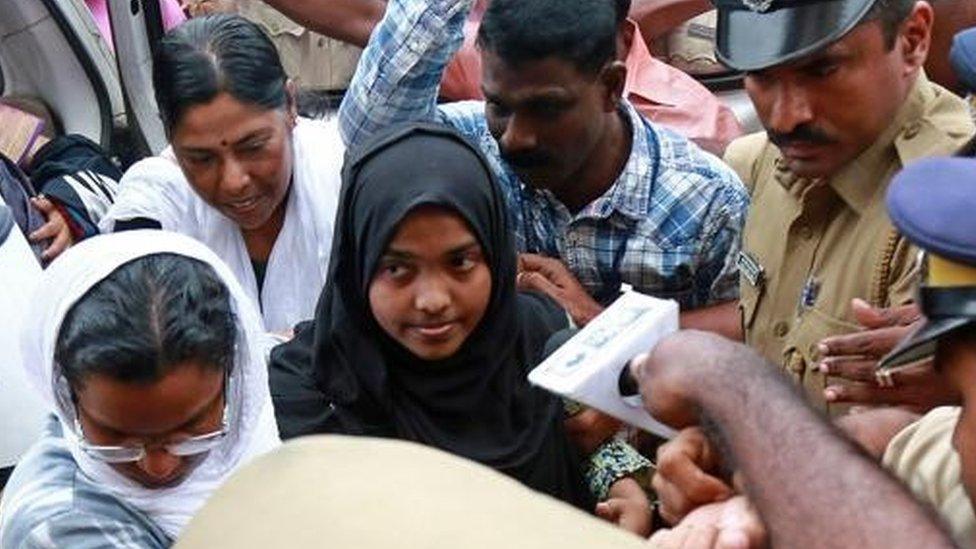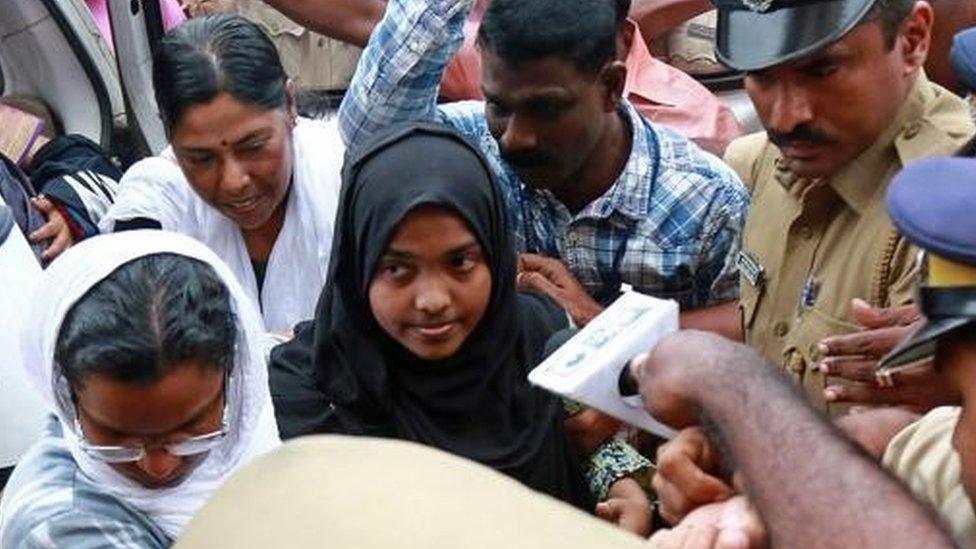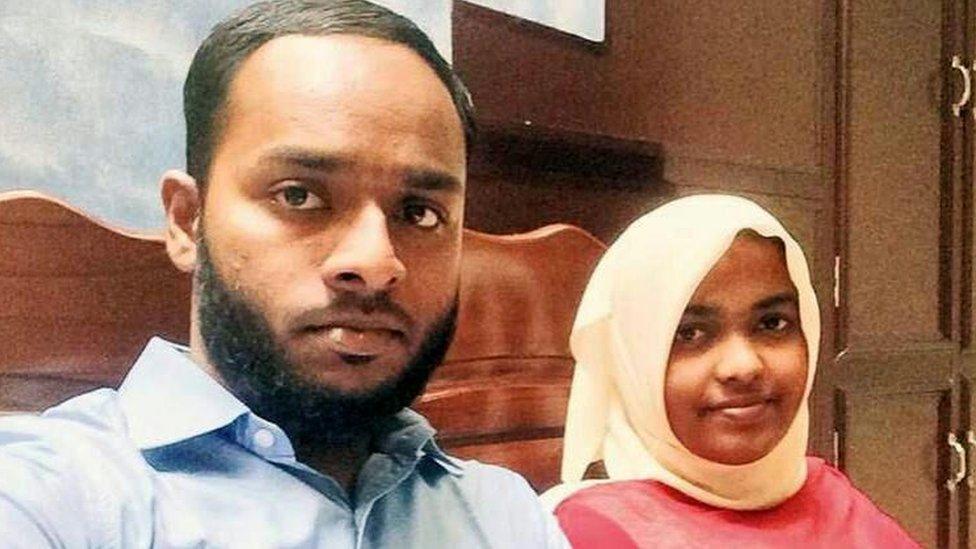India Supreme Court restores 'love jihad' marriage
- Published

Hadiya Jahan was born into a Hindu family, but converted to Islam and married a Muslim man
An Indian woman at the centre of an inter-religious marriage row may now live with her husband, the Supreme Court has ruled.
Hadiya Jahan, who is in her 20s, was born into a Hindu family, but converted to Islam and married a Muslim man.
Her family alleged she was brainwashed as part of an anti-Hindu conspiracy, prompting a lower court to annul the marriage.
India's top court has now set aside the ruling, restoring their marriage.
Marriages between Hindus and Muslims have long attracted censure in conservative Indian families, but the attachment of a deeper, sinister motive to them is a recent phenomenon.
Radical Hindu fringe groups have started describing some interfaith marriages as "love jihad" - a term they use to accuse Muslim men of participating in a "conspiracy to turn Hindu women from their religion by seducing them".
Hadiya Jahan, earlier known by her Hindu name Akhila Asokan, has always insisted that she acted out of her own free will.
Ms Jahan and her husband appealed after the high court in the state of Kerala annulled their marriage. The Supreme Court ordered an independent investigation.
She was summoned to testify by the top court on whether she had been forced to convert.
Ms Jahan told the three-judge bench, headed by Chief Justice Dipak Misra, that she wanted her freedom and to see her husband, who would support her financially.
She also said that she had been kept in "unlawful custody" by her parents.
In November, a top court bench allowed Ms Jahan to leave her father's custody and resume her studies.
- Published27 November 2017

- Published16 October 2017
